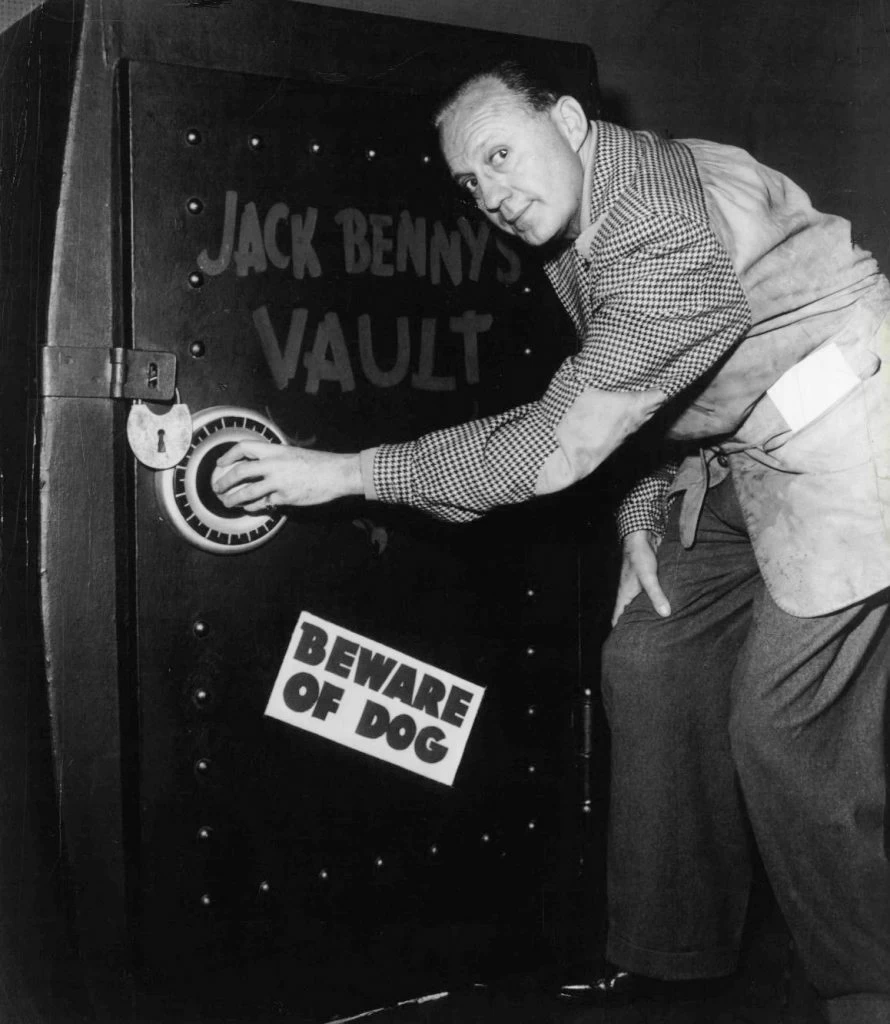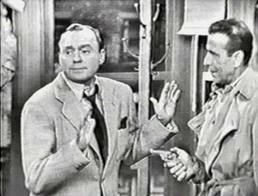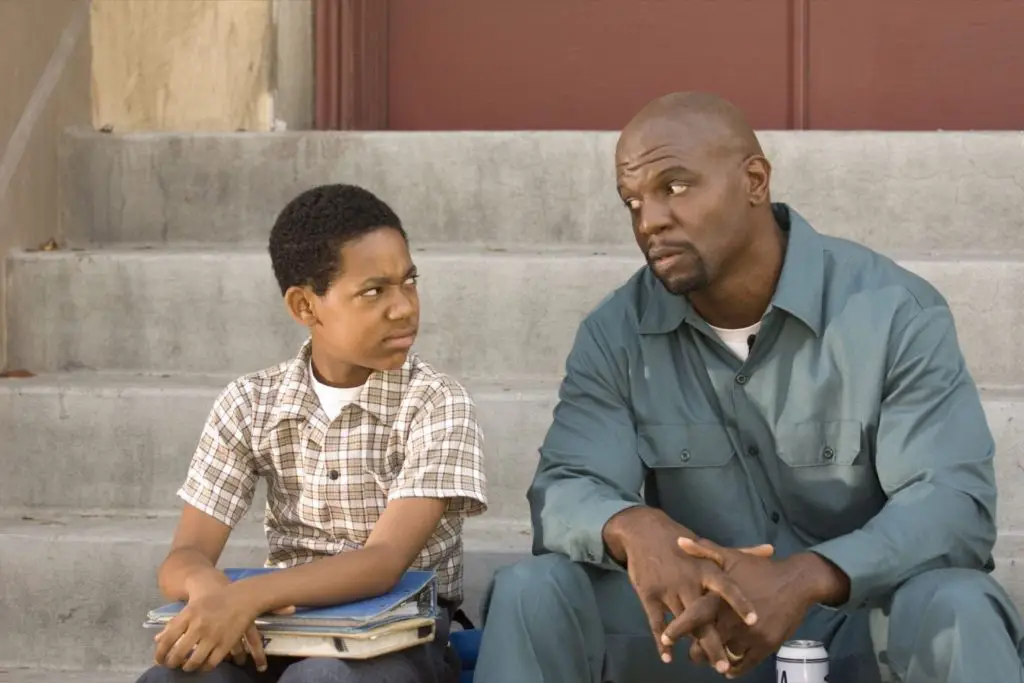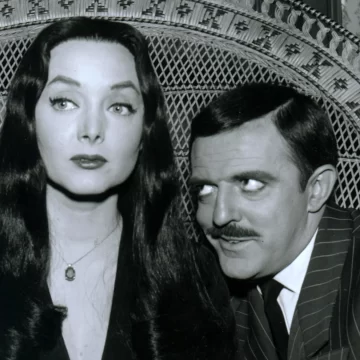Looking for ideas on how to save money? Wish you were more thrifty? I’m not suggesting anybody really model yourselves after these characters (except maybe Julius, sometimes), but if you’re looking for inspiration, television's cheapest characters can provide it.
Make It Hard to Spend Your Money
This is a tip that a lot of personal finance experts suggest. For instance, if you have credit cards, and you want to make it hard to use them, some experts suggest putting them in a block of ice in the freezer. Then, they’re there when you need them, but you can’t get to them easily for impulse shopping. That said, with online shopping be so prevalent, and websites often having our credit card information, that’s a tip that isn’t aging too well.
Still, if you can put up barriers so you can’t go on a shopping spree without some effort, that’s a smart way to go. On The Jack Benny Program (1950-1965), Jack Benny, played by Jack Benny (long before Jerry Seinfeld played Jerry Seinfeld), would go get his money in his vault, which was in his basement and had somebody standing guard. Even if Benny opened the safe with the right combination, an alarm would sound, sending off whistles, sirens, bells and a foghorn.
It was silly stuff, but Benny had the right idea. Make it challenging to spend your money, which is harder than ever these days, with brands utilizing technology to make it as easy as possible for us to spend money.

Prioritize Being Cheap
A running gag throughout Benny’s life was that he was cheap. Really cheap. Comedian George Burns once joked, “Jack was so cheap that instead of bringing his date flowers, he brought her seeds.”
Burns also said, of a present Jack gave to his wife: “He once gave Gracie a coupon for a year’s subscription to a magazine as a gift – and all she had to do was fill it out and send it in with a check.”
Which is why audiences loved a famous exchange (credited to writers Milt Josefsberg and John Tackaberry) that Jack Benny did on the radio and on his TV show, where a mugger holds him up, saying, "This is a stick up. Your money or your life." When Benny doesn’t say anything, the crook says, “Look, bud, I said, ‘Your money, or your life?’”
Benny replies: “I’m thinking it over.”

It may not be the smartest way to go through life – and you can end up paying far more if you’re too cheap – like buying an old car you’re constantly taking to the mechanic’s to get repaired – but if you think of yourself as thrifty, you probably will act accordingly.
Know the Price of Everything
In the sitcom Everybody Hates Chris (2005-2009), which is set in 1982 and examines the childhood of comedian Chris Rock, the dad, Julius (Terry Crews) is notoriously cheap and if there was a hall of fame for television's cheapest characters, he'd be in it.
Still, you have to admire that Julius knew what everything costs, and he understood the value of a dollar.
In the pilot episode of Everybody Hates Chris, Chris makes some oatmeal for his sister, Tonya, who is of the opinion that the oatmeal is too lumpy. So into the trash it’s going to go – until Julius steps in.
“I know you’re not going throw that away,” he says to Chris. “Eat that. That’s 30 cents worth of oatmeal.”
When somebody spills milk, Julius says, “That’s 49 cents of spilled milk dripping all over my table. Somebody’s gonna drink this milk.”
Look, there’s no doubt that over the course of the series, Julius went a little overboard at times for his thriftiness. Some of the memorable lines he uttered:
- “Unplug that clock, boy. You can't tell time while you sleep. That's two cents an hour.”
- “Twenty dollars to get into a club? We can dance at home for free!”
- And from the pilot: “We get one combo meal. Drew gets the burger, Tonya gets the fries. Chris, you can have the drink.”
- And when Julius told his wife, “Look, I can’t afford to buy all-new school clothes,” Rochelle fired back, “I guess that’s one more thing you can’t stand about your miserable life. My kids are not wearing these, so you either get new clothes or new kids.” Julius had a thoughtful look, and Chris Rock narrating says, “He’s trying to figure out which one is cheaper.” (Purposeful or not, that seems like a nice spin on the Jack Benny “your money or your life” gag.)
But Julius was trying to provide for his (also hard working) wife and three kids. Having uprooted his family and leaving the projects for a better part of New York City (in fact, that’s the topic of one of the first blog posts of The TV Professor: making a big change), Julius knew he had to know what everything costs down to the penny. When you’re really close to the edge of financial stability and disaster, you don’t have the luxury of not being cheap.

Question Whether You Can Find a Cheaper Way to Run Your Life
I want to get Eugene Krabs on this television's cheapest characters list. For one thing, my two daughters used to be serious SpongeBob SquarePants fans, and so they'll enjoy seeing him here, Mr. Krabs is definitely one of the television’s top TV cheapskates.
But while somebody like Julius is being cheap for noble reasons, there isn’t much to admire about how Mr. Krabs is thrifty. I mean, this is a guy who once sold SpongeBob SquarePants’ soul to the Devil – for 62 cents. When he was asked to donate money to a good cause, his retort was, “Donate money to the children’s fun? Why? What have the children ever done for me?”
But I guess what is worth trying to emulate are all the ways that Mr. Krabs attempts to lower costs in running his business. He tries to keep the Krusty Krab open 24/7, which isn’t a bad idea, or wouldn’t be if he had hired more staff than SpongeBob and Squidward, who already work the day shift. He builds a playground at the Krusty Krab to attract children and their deep pocketed parents as customers. That’s also not a bad idea, but unfortunately he builds it out of random secondhand parts and garbage, and so that flops.
Mr. Krabs’ ingenuity is worth emulating, but he hasn’t picked up on the idea that sometimes to make money, you have to spend it first.

Spend Less Without Anyone Noticing
Now most people adopting this strategy do things like going to thrift stores to buy second-hand jeans or shoes. (Incidentally, Julius goes to a thrift store to buy his kids school clothes, though his wife shoots down that plan. She doesn’t want him exchanging the kids’ old school clothes for other kids’ old school clothes. And, sure, some thrift stores have really great deals and high quality brands, but the store Julius went to wasn't one of those upscale consignment shops.)
Other people will do things like shop the clearance rack – or go to a supermarket that specializes in perfectly good but beat up food. You're buying what you always buy, just for less. It's the same principle behind coupon codes and coupons.
But Seinfeld’s George Costanza takes the "spend less, see no hit to your quality of life" strategy to new depths. We’ve established before on The TV Professor that George was a skinflint and one of television's cheapest characters (not that anybody needed that insight from this blog), but certainly the time he made up a charity to get out of gift giving was pretty ingenious, as well as maybe one of his low points.
Now, just to be clear, I’m not saying anybody should do create a fake charity to get out of gift giving – I’m just saying that if we could harness George’s creativity for other money saving ideas, we might be financially better off.
For those who don’t know, in “The Strike,” which was in the ninth season of Seinfeld, George gives Jerry a Christmas card. The dialogue went like this:
Jerry: (Reading it) "A donation has been made in your name to the Human Fund." - What is that?
George: (proud) Made it up.
Jerry: (Continuing reading) "The Human Fund. Money for people."
George: What do you think?
Jerry: It has a certain understated stupidity.
To be clear, George isn’t accepting money for a fake charity, well, at least at first. That would be wrong and terrible, although what he does is wrong and terrible, just in a less wrong and terrible way.
George figures that he can get out of gift giving if he tells people that instead of buying them a gift, he has donated money in their name to “The Human Fund.”
There is no charity, and George is giving no money to this fake charity, but people can feel good about the donation being made in their names, and George is spared from buying people a gift – but by changing the "gift giving" equation, he can still receive presents, like at his Christmas office party.
When Jerry compliments some cufflinks, George says, “Office Christmas gift. I tell you, this Human Fund is a gold mine!”
It's a strategy that probably wouldn’t work today. People would be immediately Googling it to find out more about the charity, and in case, it backfires on George when his boss writes a $20,000 check for The Human Fund – and later learns that the nonprofit isn’t real.
Things spiral out of control for awhile for George after that, which I won’t get into, but this is the famous “Festivus” episode – but, again, the point of all of this is that there’s probably something to be learned by studying television's cheapest characters. Maybe.
Where you can watch these shows (at the time of this writing) for tips from television's cheapest characters: You can find The Jack Benny Show on Antenna TV. Everybody Hates Chris can be found on Hulu.com. SpongeBob SquarePants is on ParamountPlus.com. Among other places, you can find the entire series of Seinfeld on Hulu.com or watch it often on the cable channel TBS.






Leave a Reply